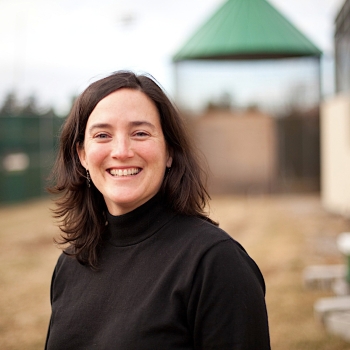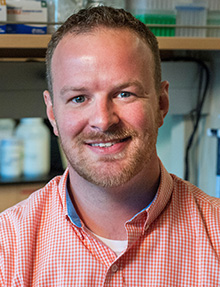Explore Jobs
Find Specific Jobs
Explore Careers
Explore Professions
Best Companies
Explore Companies
Job outlook for biologist aides in the United States
Are biologist aide jobs in demand?
Biologist Aide job and salary trends over time
Biologist Aide jobs over time
Biologist Aide job growth rate over time
| Year | # Of Jobs | % Of Population |
|---|---|---|
| 2021 | 237 | 0.00% |
| 2020 | 256 | 0.00% |
| 2019 | 286 | 0.00% |
| 2018 | 266 | 0.00% |
| 2017 | 263 | 0.00% |
Average biologist aide salary over time
Biologist Aide salary by year
| Year | Avg. Salary | Hourly Rate | % Change |
|---|---|---|---|
| 2025 | $50,139 | $24.11 | +4.9% |
| 2024 | $47,811 | $22.99 | --0.2% |
| 2023 | $47,925 | $23.04 | +1.8% |
| 2022 | $47,071 | $22.63 | +2.9% |
| 2021 | $45,733 | $21.99 | +1.4% |
Biologist Aide jobs by state
Most common states for biologist aides
| Rank | State | Population | # of Jobs | Employment/ 1000ppl |
|---|---|---|---|---|
| 1 | Montana | 1,050,493 | 135 | 13% |
| 2 | Indiana | 6,666,818 | 790 | 12% |
| 3 | Iowa | 3,145,711 | 302 | 10% |
| 4 | Kansas | 2,913,123 | 298 | 10% |
| 5 | Nebraska | 1,920,076 | 187 | 10% |
| 6 | Alaska | 739,795 | 75 | 10% |
| 7 | Minnesota | 5,576,606 | 511 | 9% |
| 8 | Maine | 1,335,907 | 118 | 9% |
| 9 | Michigan | 9,962,311 | 773 | 8% |
| 10 | Massachusetts | 6,859,819 | 527 | 8% |
| 11 | Vermont | 623,657 | 48 | 8% |
| 12 | Pennsylvania | 12,805,537 | 948 | 7% |
| 13 | New Jersey | 9,005,644 | 602 | 7% |
| 14 | Wisconsin | 5,795,483 | 405 | 7% |
| 15 | West Virginia | 1,815,857 | 124 | 7% |
| 16 | North Dakota | 755,393 | 53 | 7% |
| 17 | New York | 19,849,399 | 1,101 | 6% |
| 18 | Kentucky | 4,454,189 | 261 | 6% |
| 19 | Rhode Island | 1,059,639 | 65 | 6% |
| 20 | South Dakota | 869,666 | 56 | 6% |
Biologist Aide job outlook: Expert opinions
Our panel of biologist aide experts
Lake Superior State University
Coastal Carolina University
Stockton University
Cornell University
Norfolk State University
American University

Maryville University

Paine College
Arizona Christian University

William & Mary

University of Wisconsin-La Crosse

Bucknell University

Kansas State University

Brigham Young University-Idaho

St. Norbert College

Stetson University

Martin Methodist College

Augustana College
What general advice would you give to a Biologist Aide?
Dr. Kevin Kapuscinski Ph.D.: Traditional fisheries skills such as setting and lifting nets, and collecting biological data from fish will continue to be important. Managing, analyzing, and interpreting data using spreadsheets and statistical software are also essential in fisheries. Other skills such as acoustic telemetry (deploying & maintaining receivers, implanting fish with transmitters), analyzing spatial data or other 'big data' sets, and laboratory skills (e.g., eDNA, water quality, emerging contaminants) are likely to increase in demand as technologies continue to develop.
What general advice would you give to a Biologist Aide?
Jennifer Slate PhD: Because there are so many types of jobs in biology, there is a job to suit everyone! Jobs may be people-oriented, focus primarily on labwork, or even allow one to spend time outdoors. Many (but not all) jobs in biology require further education after finishing the bachelor’s degree. Biology graduates often go on to health professional programs, to obtain teaching certification, or to obtain a master’s or PhD degree.
What will help Biologist Aides increase their earning potential?
Jennifer Slate PhD: There are so many different types of jobs in biology, to suit people of different interests. Biologists work in health care, in research labs, in environmental protection, and in teaching- just to name a few fields. Responsibilities on a day-to-day basis will depend upon the particular job field. Common skills required on a daily basis include use of computer software, ability to make and record detailed observations, and teamwork/communication skills.
What general advice would you give to a Biologist Aide?
Danielle Silvia: There are many emerging trends and changes in the natural world making biology a fascinating career to embark on. According to the US Bureau of Labor Statistics, the field of biology is predicted to see a 5% increase in job growth through 2032, as biologists are in high demand across areas such as healthcare, environmental science, sustainability, biotechnology, and more. Due to pressing issues like climate change, the disappearance of species and nature, public health crises, drug development, and genetic engineering, becoming a biologist today will provide career advancement tomorrow. You’ll have the opportunity to make a difference in important areas of society while pursuing an intellectually stimulating career for the long-term.
What Biologist Aide skills would you recommend for someone trying to advance their career?
Danielle Silvia: A day in the life of a biologist typically involves researching various forms of life, such as bacteria, animals, plants, how they impact the world around them, and vice versa. Biologists may run experiments to work towards answering these questions, using some of the latest and greatest scientific tools and techniques in a laboratory setting. The job scope also includes collecting and reviewing data from research and experiments, and creating reports based on findings to solve important problems. Biologists work at all levels on organisms from the molecular to the whole organism to populations.
Derek Crane Ph.D.
Associate ProfessorCoastal Carolina University
Ecology, Evolution, Systematics, And Population Biology
What will help Biologist Aides increase their earning potential?
Derek Crane Ph.D.: Some of our greatest challenges as a global society, such as food security under a changing climate, predicting, preventing, and handling of future pandemics, and rapid loss of biodiversity are based in biology. We need smart, energetic, and motivated people to address these issues.
What general advice would you give to a Biologist Aide?
Dr. Adam Aguiar Ph.D.: Biology offers a variety of career opportunities in labs, industry, journalism, environmental organizations, policy-making, teaching, etc. The field is essential for addressing societal challenges and is stable in society.
Professor Marvin Pritts
Professor of HorticultureCornell University
International Agriculture
What Biologist Aide skills would you recommend for someone trying to advance their career?
Professor Marvin Pritts: Some jobs are mostly lab-based while others are field-based. Still others involve education or data management so would occur mostly inside. I think the best type of job is one that involves all three components, and a career in plant science can allow for one to participate in all of these. Lab-based jobs typically involve some sort of research, genetic studies, propagation, or analyses of samples. Field-based jobs typically involve growing or propagating plants, data collection or scouting, pest management, plant breeding, or crop and natural area management. The number of careers that fall under the plant science category is very diverse so there is no typical day. Even within a particular career, what is done in a day varies greatly by season of the year.
Nazir Barekzi Ph.D.
Associate ProfessorNorfolk State University
Biology
What general advice would you give to a Biologist Aide?
Nazir Barekzi Ph.D.: In order to maximize the salary potential in the field of Biology, stay focused to the fundamental basics and use your skillset to problem solve obstacles and overcome them with confidence. You are no longer in the classroom, so it's time to show off all that you know. In addition, leverage your skills learned in hands-on labs to maximize your salary potential.
What will help Biologist Aides increase their earning potential?
Meg Bentley: Remember that you are "starting your career" - even the most brilliant and capable people have to start somewhere, so don't attach a starting salary to your self-worth and don't think that a high salary will make up for a miserable job experience. Ask upfront questions about how your employer sets your initial salary and then handles and manages promotions and raises. Remember, that benefits other than salary count toward your overall compensation package (health insurance, retirement, childcare), so include those as well and ask about benefits that are really important to you. Also, do your homework - don't ask for a $90K starting salary when the CEO makes $110K. Once you accept an offer, be willing to listen to feedback on your performance and address it as best you can. Finally - seek out employers/companies where you can have balance, be happy, and do something that you think is important while also identifying ways to grow professionally and increase your salary.

Stacy Donovan Ph.D.
Associate Professor of Biology and Forensic ScienceMaryville University
College of Arts and Sciences
What soft skills should all Biologist Aides possess?
Stacy Donovan Ph.D.: -Ability to work independently
-Ability to work collaboratively
-Ability to communicate effectively to a wide variety of stakeholders
-Ability to ask questions
What hard/technical skills are most important for Biologist Aides?
Stacy Donovan Ph.D.: This depends on the job market in the region - in the St. Louis area, I have seen
-tissue culture - cells and plants
-molecular biology skills - cloning, PCR, gene expression (qPCR)
-sequencing analysis
-histology - tissue sectioning and immunostaining
-micro pipetting and making solutions
What skills will help Biologist Aides earn the most?
Stacy Donovan Ph.D.: When examining job ads for an entry-level position, as I often see that pay is dependent upon experience. I encourage students to apply for internships to obtain skills outside of research and university laboratory courses. If an internship is not possible, then I encourage students to take as many courses with laboratories as they can to increase their skill level and marketability. Students should look for upper-level biology and chemistry laboratory courses that have tangible skills like biochemistry, quantitative analysis, molecular biology, microbiology, or instrumental analysis. Coding courses are also beneficial for students wanting to apply for jobs involving genomic analysis.

Srinivas Sonne Ph.D.
Assistant Professor of BiologyPaine College
Department Of Mathematics Sciences & Technology
What soft skills should all Biologist Aides possess?
Srinivas Sonne Ph.D.: Flexibility, Communication, Leadership, Team work, thorough understanding of underlying concepts for biological principles, etc., are required for Biology students.
What skills will help Biologist Aides earn the most?
Srinivas Sonne Ph.D.: Both Hard and Soft skills explained above would earn the most.
What soft skills should all Biologist Aides possess?
Joseph Kezele: The ability to think and reason logically. Too many young people cannot do so because they were spoon-fed and then expected to regurgitate that back.
What hard/technical skills are most important for Biologist Aides?
Joseph Kezele: Microscope work

Will there be an enduring impact of the coronavirus pandemic on Biologist Aides?
S. Laurie Sanderson Ph.D.: The pandemic has highlighted the value of scientific training and a strong background in biology. Many businesses/industries and federal/state agencies need employees to understand science and technology, and that need will continue after the pandemic.
What type of skills will young Biologist Aides need?
S. Laurie Sanderson Ph.D.: Young graduates will benefit from problem-solving skills, interpersonal and teamwork skills, quantitative skills, and strong writing abilities.
What experience really stands out on Biologist Aide resumes?
S. Laurie Sanderson Ph.D.: Employers are very interested in relevant hands-on experience, including internships, research, and volunteer positions.

Scott Cooper Ph.D.
Professor of Biology and Director of Undergraduate Research and CreativityUniversity of Wisconsin-La Crosse
Biology Department
What type of skills will young Biologist Aides need?
Scott Cooper Ph.D.: Students will need traditional lab skills, good record keeping, and the ability to do calculations in the lab and clinical settings. All jobs are using more technology, so facility with programs and databases is essential.
Are there any particularly good places in the United States for Biologist Aides to find work opportunities?
Scott Cooper Ph.D.: Most large university towns have some research park that hires a lot of students. Some biotech centers in the country are the research triangle park in North Carolina, Bethesda Maryland, Cambridge Massachusetts, San Francisco, Chicago, and Philadelphia.

What general advice would you give to a Biologist Aide?
Dr. Elizabeth Capaldi Ph.D.: We know that employers value critical thinking skills, problem-solving abilities, and high communication skills. Our majors have those skill sets: but entry-level jobs are hard to come by - there aren't many openings at this point. I believe that landing the few available jobs right now will also require creativity and flexibility.

What experience really stands out on Biologist Aide resumes?
Christopher Herren Ph.D.: Undergraduate research and summer internships with companies/hospitals.
What Biologist Aide skills would you recommend for someone trying to advance their career?
Christopher Herren Ph.D.: For a gap year, get a job related to your major.
What technology do you think will become more important and prevalent for Biologist Aides in the next 3-5 years?
Christopher Herren Ph.D.: It doesn't matter. Companies have and will always want people with core competencies like agreeability, problem-solving, adapting to new projects, data collection, and data analysis. From those, they'll train anyone for a new piece of equipment.

Are there any particularly good places in the United States for Biologist Aides to find work opportunities?
Dr. Steven Christenson Ph.D.: I think one thing the pandemic has done has shed light on the need for rapid and accurate laboratory testing. It is not unlikely that COVID alone will increase demand for laboratory testing and thus require the hiring of more Medical Lab Scientists. This increase will likely be present across the country. So I think that everywhere will be a good place to find work opportunities. This field already enjoyed high worker demand and double-digit job growth outlook even before the pandemic. I suspect it will only be stronger now.
How do you envision technology impacting Biologist Aides in the next 5 years?
Dr. Steven Christenson Ph.D.: The increased development of automated testing will play a role in this field. Technology might not impact job availability as much as you might think, because the field is already highly automated and human personnel is still needed to run the various pieces of equipment. In fact, automation is generally a positive move because it removes some of the monotony and repetitive nature of the job.
Will there be an enduring impact of the coronavirus pandemic on Biologist Aides?
Adam Brandt Ph.D.: I think so, at the very least, graduates missed out on all of the classic senior year events. A lot of traditions are missed. Ultimately a very unceremonious end to all of their hard work. Then there is starting their job search when we're facing record levels of unemployment during a pandemic. Interviews will be relying on Zoom and Skype far more than they had in the past. Telecommuting is going to be more prominent. So in some ways, that may increase job prospects, but at the same time, it means more competition from candidates over a wider area if the job can be done remotely.
Are there any particularly good places in the United States for Biologist Aides to find work opportunities?
Adam Brandt Ph.D.: I don't get the impression that the locations of jobs have changed much-for example, biotech jobs are going to be concentrated around major urban areas like Madison, WI or Chicago, IL. Field jobs like with the DNR are going to be in more rural areas. NGOs are often concentrated around Washington DC and the East Coast. However, some jobs might be more flexible in needing employees to relocate, so again depending on the job, recent graduates might not be as geographically restricted. If remote work isn't an option, I often find that students not willing to relocate have the hardest time finding jobs. If you try to look for jobs only around your home town, then you're really limiting yourself. The job might be there, but you're banking on one or two positions being open at exactly the time you are on the job hunt.

Will there be an enduring impact of the coronavirus pandemic on Biologist Aides?
Sean Beckmann: Current and recent graduates are entering an economy that is severely depressed as a result of the pandemic. For biology and chemistry graduates, there is an interesting compounding factor to this. There are certain jobs being created in the sciences, as a result of COVID-19, in research and testing. The issue is that these positions are, by and large, temporary positions. This combination is likely to lead, at least for a period of time, to a situation where the number of applicants will certainly exceed the number of available jobs. This may result in some students pursuing positions outside of their degree field, or in many cases, students pursuing a graduate degree to make themselves more marketable and delay paying back student loans.
The positive side is that students interested in disease ecology, epidemiology, and biotechnology are likely to see an increase in demand as this pandemic will likely result in increased funding and focus in these areas.

Mark Chee Ph.D.
Assistant Professor of BiologyMartin Methodist College
Department of Biology
Will there be an enduring impact of the coronavirus pandemic on Biologist Aides?
Mark Chee Ph.D.: I believe that there will be a significant impact for a number of years, especially if attempts by public health agencies to rein in the pandemic are unsuccessful.
The impact of the pandemic on research in life sciences has manifest itself in a number of ways. Some examples:
Many labs were forced to suspend operations, at the beginning of the pandemic, and they stayed closed for a few months thereafter. Lab workers now have to work staggered shifts, to minimize crowding in labs and research buildings, and interactions between lab workers have been minimized. This has fundamentally altered the nature of how scientists communicate and collaborate.
Funding opportunities and investment in research related to COVID-19 have been plentiful, but this has come at the expense of research in other areas. Biochemistry, biophysics, and molecular biology research have become focused on studying the nature of the SARS-CoV2 pathogen and developing research tools, medical diagnostics, potential vaccines, and potential therapeutics, with many new opportunities.
Are there any particularly good places in the United States for Biologist Aides to find work opportunities?
Mark Chee Ph.D.: Cities that have high concentrations of industries, universities, and government agencies that offer employment opportunities in biochemistry, biophysics, and molecular biology include:
-Boston, MA
-San Francisco, CA
-San Diego, CA
-New Jersey, NJ
-Research Triangle Park, NC
-Washington, DC
-Bethesda, MD
Smaller cities such as Huntsville, AL, may also offer opportunities, although fewer in number. Those that host large research universities are usually a good bet.

Are there any particularly good places in the United States for Biologist Aides to find work opportunities?
Kevin Geedey: I would argue that folks seeking entry-level environmental careers need to be flexible about location. It is wonderful to have, for example, working in the pacific northwest as a long-term goal, but in the short term, you may need to build your resume somewhere you are less excited about. One possible byproduct of this is, you might actually end up falling in love with a different part of the country than you imagined. Be open-minded and flexible about where that first job will be.